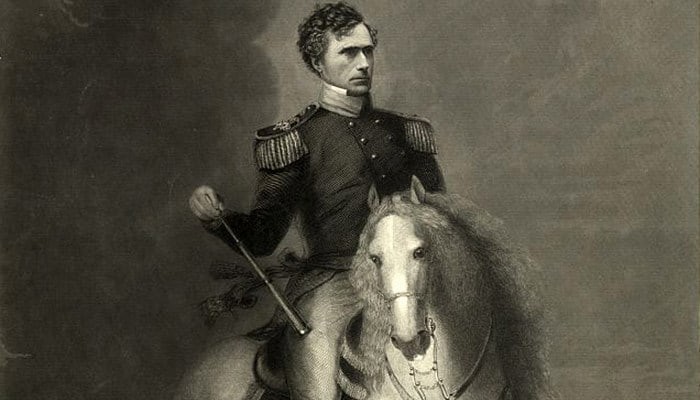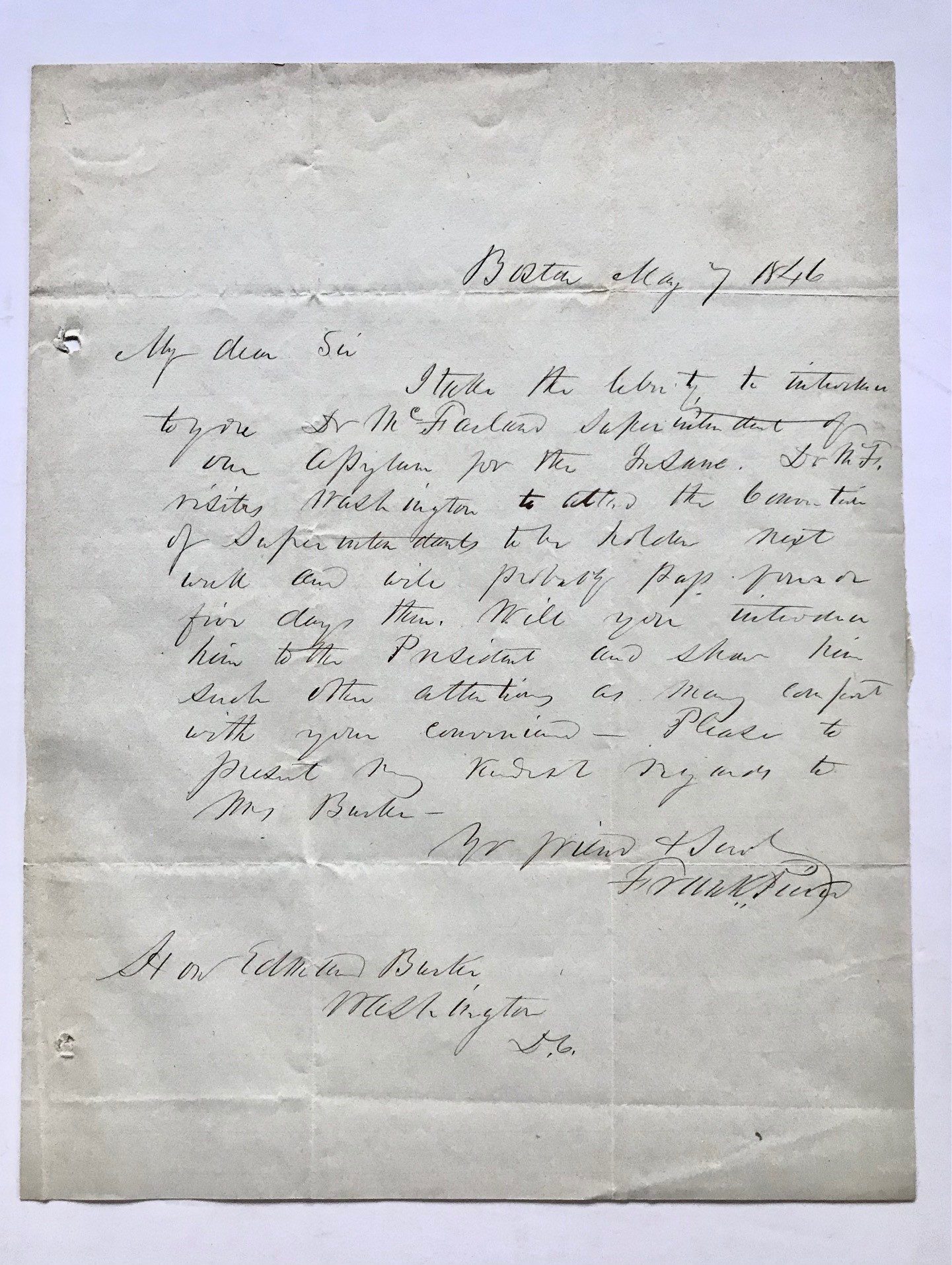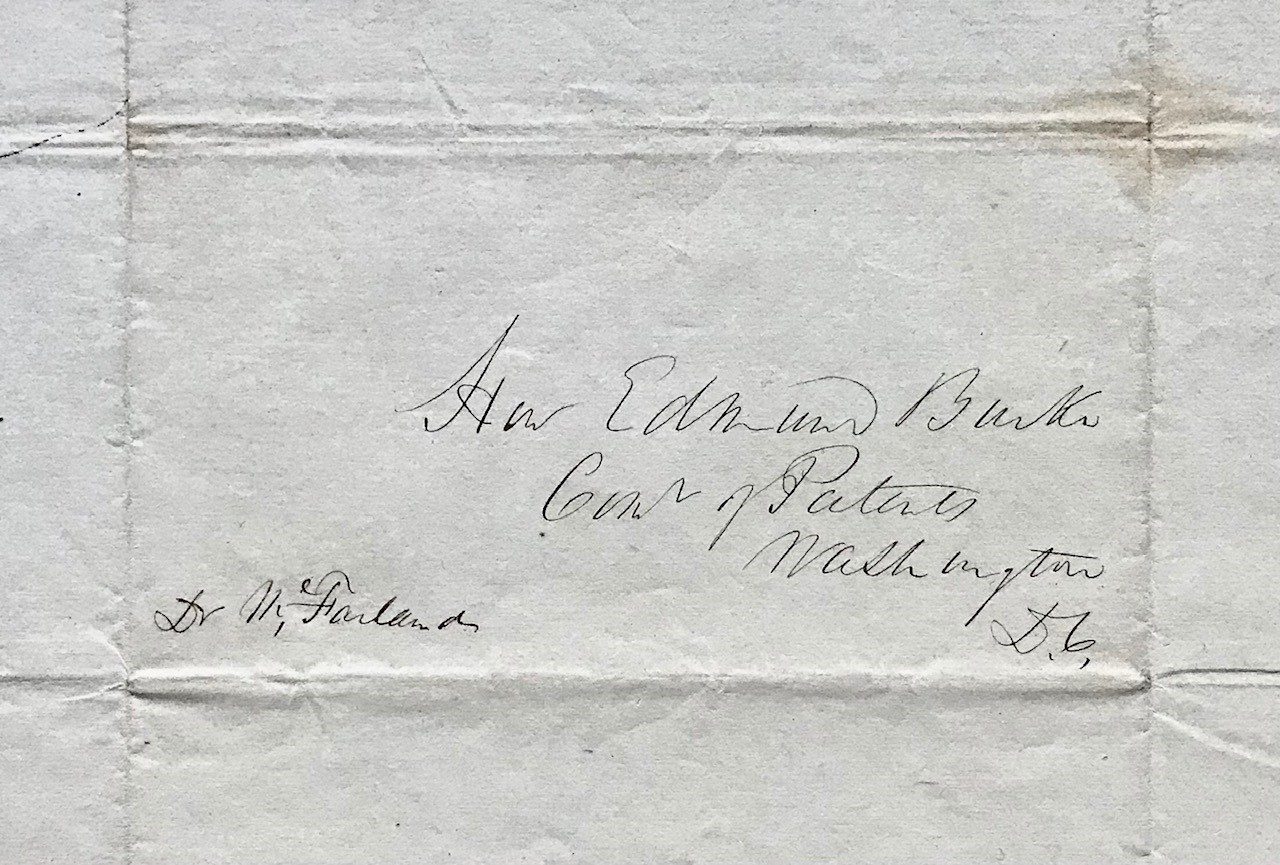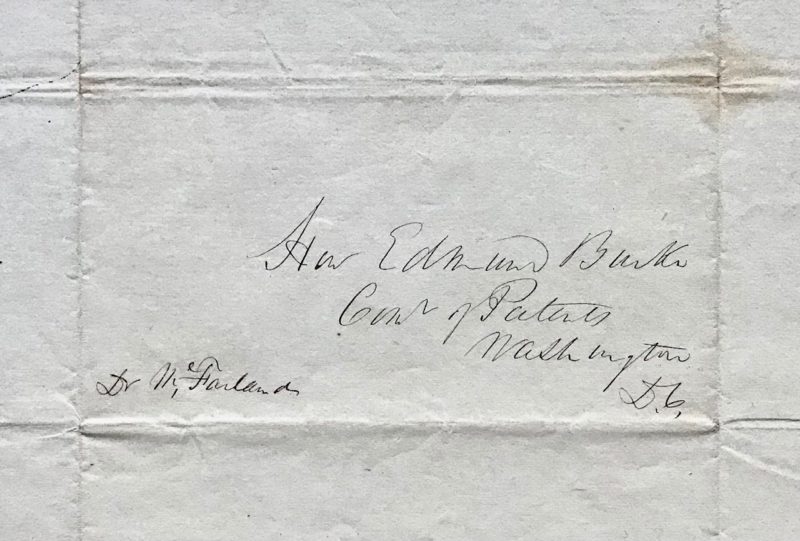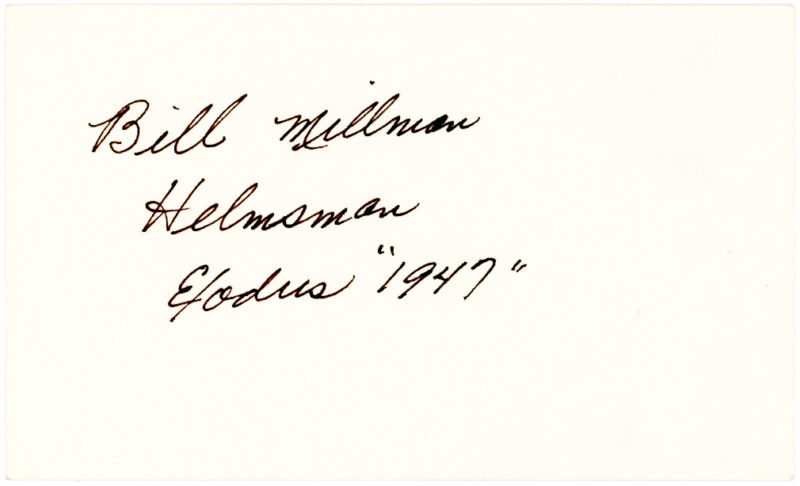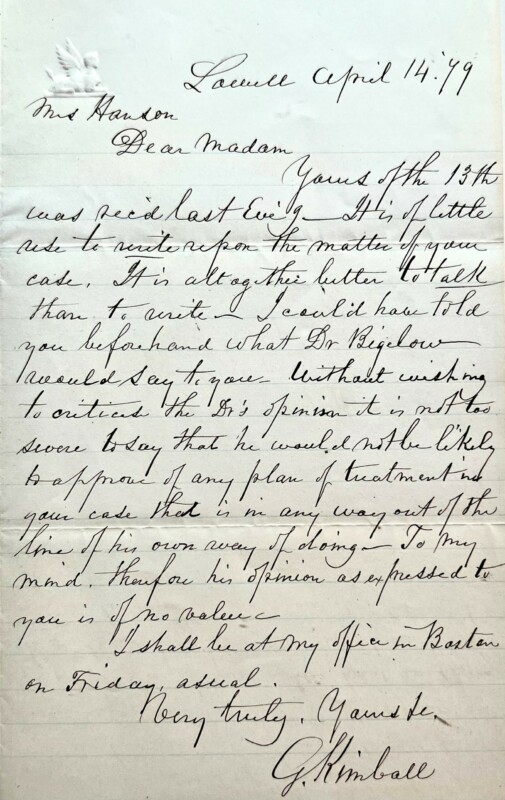The son of New Hampshire’s governor, Pierce studied law before enjoying a varied career in state politics. From 1829-1833 he was part of New Hampshire’s state House of Representatives, serving as speaker during his last year. Though not yet 30, he was elected to Congress in 1832, and four years later, won a Senate seat. In 1842, worn out by his final years of service in Washington, Pierce resigned his seat. Two years later President James Polk (1795‑1849) appointed him a district attorney in New Hampshire, and “from 1842 to 1847 he managed most of the local campaigns, enforcing strict discipline to keep the party united and victorious,” (DAB). In August 1846, just two months after our letter, Polk offered Pierce the office of Attorney General, but Pierce declined, observing that when he had resigned from the Senate, he had done so with the express purpose never to be separated from his family again except to serve his country during war. The following year he was commissioned as a colonel in the U.S. Army for service in the Mexican‑American War. Despite his promise to his wife, Jane, he accepted the Democratic nomination for president, and served from 1853-1857.
Pierce’s efforts to lead the nation were hindered by divisions within his party. Nonetheless, he reformed the Civil Service, the Departments of the Interior and Treasury; and oversaw the territorial expansion of the United States, most notably in completing the Gadsden Purchase, through which the U.S. obtained modern-day Arizona and southern New Mexico from Mexico, and which was strongly advocated by his Secretary of War Jefferson Davis. However, it was also territorial expansion and its relation to the slavery that undermined Pierce’s presidency, specifically the Kansas-Nebraska Act whose passage on May 30, 1854, contributed to the rise of the Republican Party. The legislation, drafted by Pierce and Democratic Senator Stephen A. Douglas, opened Kansans to settlement while allowing popular sovereignty to determine whether Kansas would allow slavery. This led both pro- and anti-slavery advocates to settle in Kansas for the sole purpose of casting their ballots on the matter. The resulting violence, such as that famously perpetrated by John Brown, was dubbed “Bleeding Kansas” and helped further divide both the Democratic Party and the entire nation, propelling it toward civil war. Because of the political discord that marked Pierce’s presidency, the Democratic Party failed to nominate him for reelection.
Andrew McFarland (1817-1891) was a physician and a native of Concord, New Hampshire, where Pierce had lived since 1838, when not in Washington. From 1845-1852, he directed the New Hampshire Asylum for the Insane. He later served as superintendent of the Illinois State Asylum for the Insane in Jacksonville and founded the private asylum Oak Lawn Retreat in Jacksonville.
Folded and creased with two small file holes in the left margin. In fine condition.
